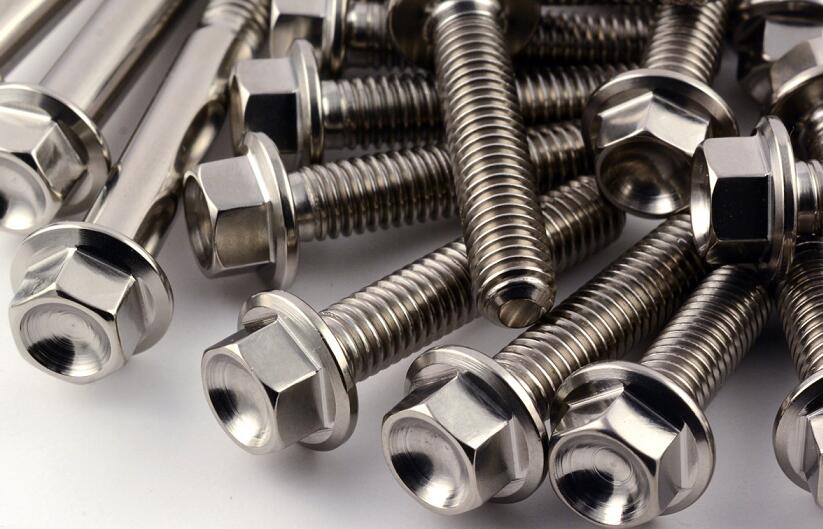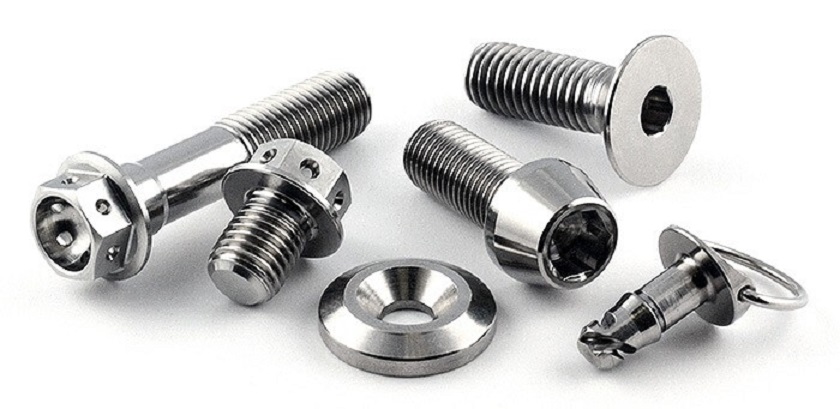Advantages of Titanium Fasteners

Advantages of Titanium Fasteners
In recent years, the application of titanium fasteners has become more and more extensive. Although the price of titanium fasteners has always been higher than those of other materials for models of the same specifications, its performance and application range have the irreplaceable advantages of ordinary fasteners. In this article, let's take a deeper look at the advantages of titanium fasteners.

Advantages of Titanium Fasteners
The Advantages of Titanium Fasteners
1. High Specific Strength
The density of titanium is 4.51g/cm³, which is higher than aluminum but lower than steel, copper, and nickel, but its strength is much higher than other metals. Fasteners made of titanium are light and strong.
2. Good Corrosion Resistance
Titanium and titanium alloys are stable in many media, and titanium fasteners can be used in various corrosive environments.
3. Good Heat Resistance and Low-Temperature Resistance
Titanium fasteners can work normally at a high temperature of 600°C and a low temperature of minus 250°C and can maintain their shape without changing.
4. Non-Magnetic and Non-Toxic
Titanium is a non-magnetic metal and will not be magnetized in a strong magnetic field. Titanium is not only non-toxic but also compatible with the human body.
5. Strong Resistance to Damping
Compared with steel and copper, titanium has the longest damping time when subjected to mechanical and electrical vibration. It can be used as a tuning fork, vibration element of a medical ultrasonic pulverizer, and vibration film of an advanced audio loudspeaker.
The Applications of Titanium Fasteners
1. Nuclear Industry
During the construction of nuclear reactors, many components, pipes, and related parts require a large amount of titanium and titanium alloy metals, and titanium fasteners are one of them.
2. Electronic Equipment
In the past, many mobile phones and computers used steel fasteners. However, steel is magnetic and needs to be demagnetized. Otherwise, steel fasteners are easily magnetized under the influence of electromagnetic fields, which affects network signals. Titanium fasteners are non-magnetic, light in weight, and high in strength, making them very suitable for electronic equipment fasteners.
4. Medical Industry
Titanium is a biophilic metal and is widely used in the medical industry. Titanium fasteners are often used in the fixation of clinical fractures and dislocations, which are strong and not easily deformed.
5. Aerospace Industry
The aerospace industry is still the most important titanium user. Using titanium fasteners to replace steel fasteners with similar strength has a significant effect on aircraft weight reduction. In addition, titanium alloy has good elasticity and non-magnetic properties, which also plays a very important role in preventing the loosening of fasteners and preventing magnetic field interference.
With the development of the titanium industry, titanium fasteners will no longer be limited to high-end precision industries but will be more widely used in people's daily lives.
Conclusion
Thank you for reading our article and we hope it can help you have a better understanding of the advantages of titanium fasteners. If you want to know more about titanium fasteners, we would like to advise you to visit Advanced Refractory Metals (ARM) for more information.
Headquartered in Lake Forest, California, USA, Advanced Refractory Metals (ARM) is a leading manufacturer & supplier of refractory metals across the world. It provides customers with high-quality refractory metals & alloys such as titanium, tungsten, molybdenum, tantalum, rhenium, and zirconium at a very competitive price.
{{item.content}}
LEVE A REPLY
{{item.children[0].content}}
{{item.content}}






